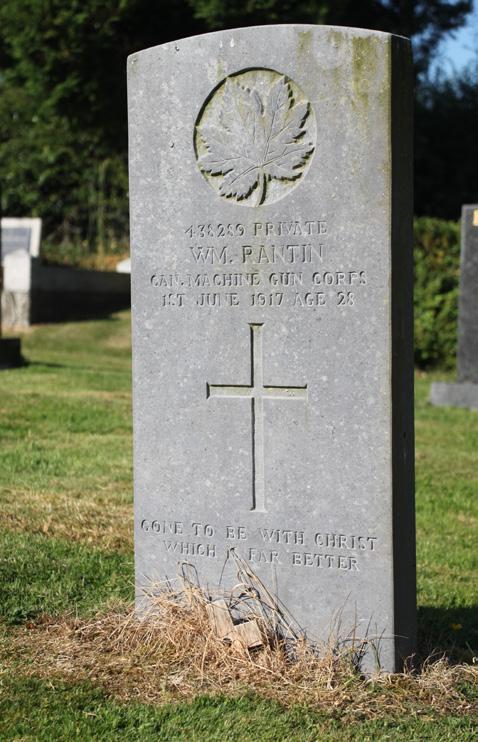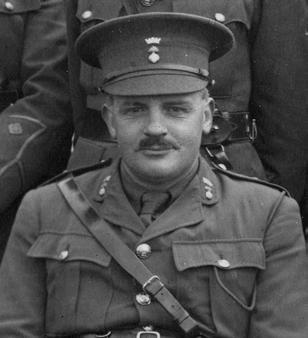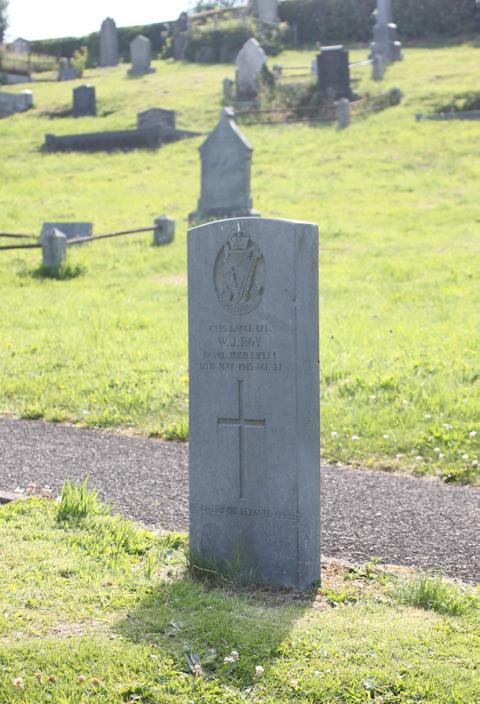
4 minute read
Warrenpoint
from A Guide to First World War Commonwealth War Graves in Newry & Mournehe title of your publication
by VisitMourne
Major William Charles Hall
William Charles Hall was born on 10 May 1868, the second son of Major William James Hall, J.P., D.L., of Narrow Water Castle, Warrenpoint. He entered the Royal Welsh Fusiliers in November 1885 and served during the Hazara Expedition to Afghanistan with the 1st Battalion in 1891, obtaining the Black Mountain Campaign Medal with a clasp. In 1895 he was promoted to the rank of Captain and on the 18 October 1902 was appointed Major in the Reserve of Officers for service in connection with the South African War. On the formation of the Ulster Division he joined the East Belfast Battalion under brevet and rendered particularly valuable service in the training of recruits.
Advertisement
Major Hall married Miss Olive Edith Kathleen Roche, daughter of Sir Standish O’Grady Roche, in July 1901. He was a Unionist in politics, and a member of the Church of Ireland. His half-brother Major Frank Hall was Military Secretary of the U.V.F., involved in the organising of Ulster Day in 1912, and later joined MI5 as a spy for the British War Office. (Frank was the first ‘Q’ in Army Intelligence, a codename later utilized by Ian Fleming in his Bond novels.)
William Charles Hall’s death came about as a result of the premature explosion of a bomb during a practice exercise at Newtownards on 17 December 1917. The flag at Narrow Water Castle flew at half-mast as Major Hall’s body left, borne on a gun-carriage. The Church was draped in black. A firing party, consisting of over 100 men, was provided by the 4th Battalion R.I.R. from Newry, who discharged the farewell salute.
Major W. C. Hall by William Conor, 1917 (Courtesy of Down County Museum)
Private Charles Warren McGibney
C. W. McGibney was one of the five children of James Ellison McGibney (Principal at Clontifleece National School, near Warrenpoint) and Jane McGibney. Private McGibney joined the Leinster Regiment and he saw particularly active service during the final eight months of the war. After the Armistice, his battalion, which was attached to the 29th Division, was the first British infantry battalion to march over the field on the way to Germany and reached Cologne on 9 December 1918. As a result of the severity of the weather and the long marches involved, Charles contracted tonsillitis. He spent some time in a French hospital before being transferred to the War Hospital in Chichester where he died from pneumonia on the 2 February 1919. He had been recommended for a commission and would have received this in the ordinary way only for the signing of the Armistice.
At the time of Charles’s death his mother and sisters were living at Donaghaguy, Warrenpoint. His elder brother, Francis George McGibney of the Royal Irish Fusiliers, had been killed while leading a raiding party at a chemical works at Rouex in France in May 1917, while another brother, Second Lieutenant James McGibney of the Leinster Regiment was severely wounded at Lens on 10 October 1918. The young men’s father, James Ellison McGibney, upon learning of the death of his eldest son, Francis, obtained leave from his job in the Transavaal Education Department and joined the South African contingent of the British forces in order to “dedicate his own life to the cause for which his son had sacrificed his.”
Grave of C. W. McGibney (Newry and Mourne Museum Collection)

Private Ronald David Murray
Ronald David Murray was the son of Captain Robert and Alice Murray. His father, Robert, was attached to the Northumberland Fusiliers and for a short time was stationed in the Military Barracks, Newry. Ronald volunteered for service immediately following the outbreak of the First World War, joining the 20th London Regiment on 10 August 1914. About 20 months before his death he had to sever his connection with the army due to medical unfitness and he never regained full health. On 8 October 1918 he died at Church Street, Warrenpoint, where he had been temporarily residing for three months. His brother, Private John Christie Murray, who was in the 41st Battalion Australian Infantry, had died the previous year on 25 October and is buried in Etaples Military Cemetery, France.
ACKNOWLEDGEMENTS
Thanks are due to the staff and volunteers of Newry and Mourne Museum for their assistance with the production of this booklet:
Dr Ken Abraham Richard Burns Declan Carroll Noreen Cunningham Jackie Dodds Caroline Hegarty Andrew Henry Conor Keenan Greag Mac a’ tSaoir Eamonn McArdle Amanda McKinstry Shane McGivern Anna Savage Kelly Marie Savage Dympna Tumilty Pauline Walsh Thanks are also extended to all those who contributed images and information for the booklet including:
John Campbell Beatrice Elliott Martin Grant Christina Joyce Nick Metcalfe Victoria Millar, Down County Museum Pauline Moore Commonwealth War Graves Commission staff, especially David Avery, Michael Greet and Jackie Withers Royal Irish Fusiliers Museum Staff
Booklet researched and compiled by Dr Robert Whan
© Newry and Mourne Museum, 2015
Back Page:
Grave of Owen Loughran at Killeavy Old Graveyard











